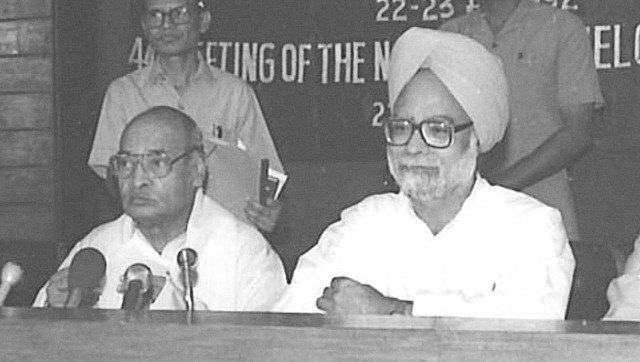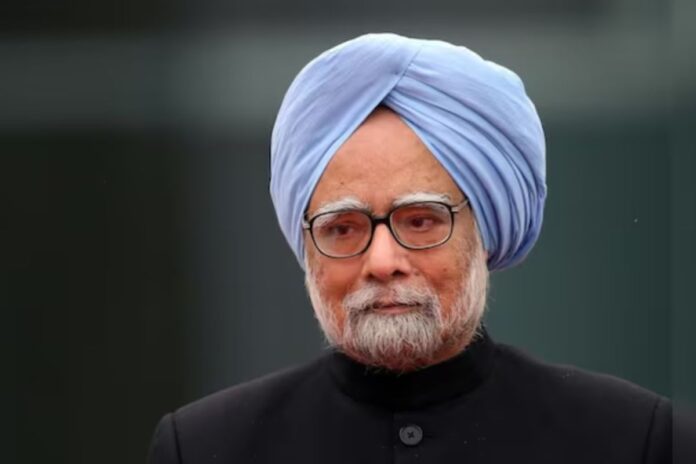Manmohan Singh, the former Prime Minister of India, who played a pivotal role in shaping the country’s economic landscape, passed away at the age of 92 in Delhi on Thursday after a prolonged illness. He had been admitted to the All India Institute of Medical Sciences (AIIMS) earlier on Thursday evening following a deterioration in his health.
The Life and Legacy of Manmohan Singh
Manmohan Singh, a distinguished economist and statesman, is widely regarded as the architect of India’s economic liberalisation in 1991. His tenure as Prime Minister of India, from 2004 to 2014, is marked by transformative economic growth, social reforms, and a significant shift in India’s global standing.
Singh’s journey in public service began long before he became the face of India’s economic reforms. Born on September 26, 1932, in Gah, a village in the Punjab province of British India (now in Pakistan), Singh’s life was shaped by the tumultuous events of Partition. His family moved to India in 1947, and despite the hardships, Singh excelled academically. He completed his undergraduate and postgraduate studies in Economics at Panjab University, followed by further academic accomplishments at the University of Cambridge and the University of Oxford.
His academic brilliance set the stage for a distinguished career in public service. Singh first held significant roles in government as Chief Economic Advisor (1972-1976) and as the Governor of the Reserve Bank of India (1982-1985). In these positions, he provided crucial guidance during periods of inflation and global oil crises. He also served as Deputy Chairman of the Planning Commission (1985-1987), where he played an essential role in shaping India’s long-term economic strategies.
A Transformative Period in India’s Economic History
Singh’s most remarkable contributions to India came when he served as Finance Minister under Prime Minister PV Narasimha Rao during the economic crisis of 1991. With the country facing a severe balance of payments crisis and depleting foreign exchange reserves, Singh introduced landmark reforms that liberalised the economy, promoted privatisation, and integrated India into global markets. These reforms are widely credited with transforming India into one of the fastest-growing economies in the world.
)
Manmohan Singh’s tenure as Prime Minister was similarly transformative. Under his leadership, India saw significant economic growth, with the country emerging as the world’s fastest-growing major economy during much of his tenure. The UPA government, which Singh led for two consecutive terms, introduced landmark initiatives like the Mahatma Gandhi National Rural Employment Guarantee Act (MGNREGA) and the Right to Information (RTI) Act. The UPA government also oversaw the historic Indo-US Civil Nuclear Agreement, which ended decades of nuclear isolation for India.
However, Singh’s time in office was also marred by a series of corruption scandals, including the 2G spectrum case and the coal block allocation controversy. Despite these controversies, Singh remained a respected figure in Indian politics, known for his integrity, humility, and calm demeanor.
Tributes and Condolences
Manmohan Singh’s death has left a void in Indian politics, with tributes pouring in from leaders across the political spectrum. Congress leader Robert Vadra, in an emotional Instagram post, said, “I am deeply saddened to learn of the passing of former Prime Minister Manmohan Singh ji. My deepest condolences to his family and loved ones. Thank you for your service to our nation. You will always be remembered for your economic revolution and the progressive changes you brought to the country.”
Veteran Congress leader Salman Khurshid also offered his condolences on social media, writing, “Deeply saddened by the passing of Dr. Manmohan Singh, former Prime Minister of India. His contributions to the nation and his dedication to public service will always be remembered.”
Singh retired from the Rajya Sabha in April 2024, marking the end of his illustrious parliamentary career, which began in 1991. He had represented Assam for five terms before moving to Rajasthan in 2019. His last intervention in Parliament was to criticise the government’s decision on demonetisation, describing it as “organised loot and legalised plunder.”
A Life Well Lived
Despite his prolonged illness in recent years, Manmohan Singh’s legacy remains intact, defined by his calm, pragmatic approach to governance and his monumental contribution to India’s economic progress. He is remembered not only for his significant role in economic reforms but also for his dedication to public service, which earned him respect both at home and abroad.
Singh’s death marks the end of an era in Indian politics. His life was a testament to the power of economic reform and intellectual rigor in public service. As India moves forward, Singh’s legacy as the architect of the country’s modern economic system will continue to inspire future generations.
The funeral arrangements and further details about former Prime Minister Manmohan Singh’s passing have yet to be confirmed by AIIMS Delhi at the time of reporting. His family, including his daughter, was seen at the hospital as news of his deteriorating condition spread.

